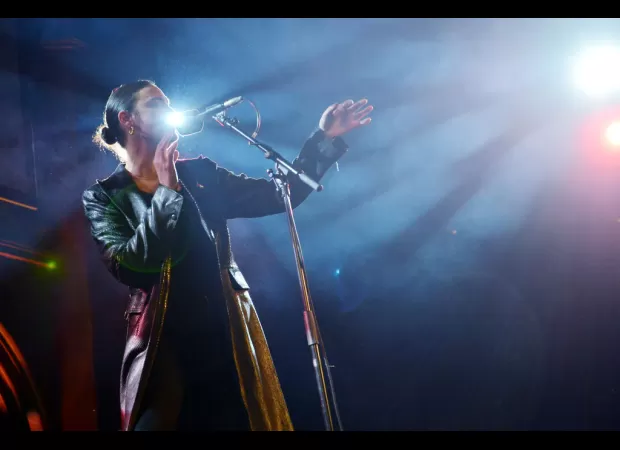Famous singer declined Glastonbury 2024 gig due to low payment offered.
Music is my profession, hate to be the bearer of bad news.

British popstar Nadine Shah recently made headlines after revealing that she turned down an offer to perform at this year's highly anticipated Glastonbury Festival. The reason? Insufficient pay.
In a post on her personal social media account, the Mercury-nominated singer set the record straight about the swirling rumors surrounding her potential appearance at the 2024 Worthy Farm event. She confirmed that she had indeed declined the gig, stating, "The rumors are untrue. I am NOT playing @glastonbury. I would have liked to, but I wasn't offered a televised stage, so I declined. It's too expensive a hit for me to take otherwise."
Shah then followed up with another post, elaborating on the financial realities of being a live performer. She wrote, "It's just a reality that playing live is super expensive, and if you can justify the costs, then sometimes you take the hit. Otherwise, we all have bills to pay."
Despite being one of the most iconic music festivals in the world, Glastonbury is known for paying artists significantly less than what they typically earn for other performances. This is due to the festival's commitment to making large donations to charity, but it often results in smaller artists being unable to perform. As Shah put it, "Sorry to break it to you, but music is my job."
In an interview with BBC 6 Music's Matt Everitt, festival organizers Michael and Emily Eavis revealed that in 2017, headliners Katy Perry, Radiohead, and Ed Sheeran were offered "less than 10% of what they'd get paid from playing any of the other major British festivals."
While the exposure and prestige of performing at Glastonbury may make it worth the financial sacrifice for some artists, those who are not covered by BBC coverage rarely see the same benefits. As Shah stated, "If I'm offered LESS money than what it costs me to play a show, then I WON'T play it. BUT if there is the bonus of it being televised, I MAY take the hit for the exposure."
Shah has been vocal about the negative impact that streaming has had on artists, forcing them to rely heavily on income from live performances. During the COVID-19 pandemic, Shah's own financial situation was so dire that she was forced to move back in with her parents. In a Guardian article, she wrote, "The pandemic obliterated festivals and gigs, meaning we were forced to survive on streaming income alone."
Many people rushed to support Shah's decision, including former BBC 6 Music DJ Shaun Keaveny, who commended her for standing up against the common belief that artists can afford to work for free. Sister Bliss of Faithless, who will be performing at Glastonbury, also weighed in, stating, "It's time they change their booking policy and stop pretending to be a charity."
Shah's posts came at a time when streaming giant Spotify was facing backlash for their low artist pay and their decision to set a threshold of 1,000 plays before songs can generate royalties. As Shah concluded, "Sorry if you find this crude, but music is my job."
In the end, it's clear that Shah is simply trying to avoid finding herself in a situation where she can't afford to pay her bills. As she stated, "To be clear, if I'm offered LESS money than what it costs me to play a show, then I WON'T play it. BUT if there is the bonus of it being televised, I MAY take the hit for the exposure."






